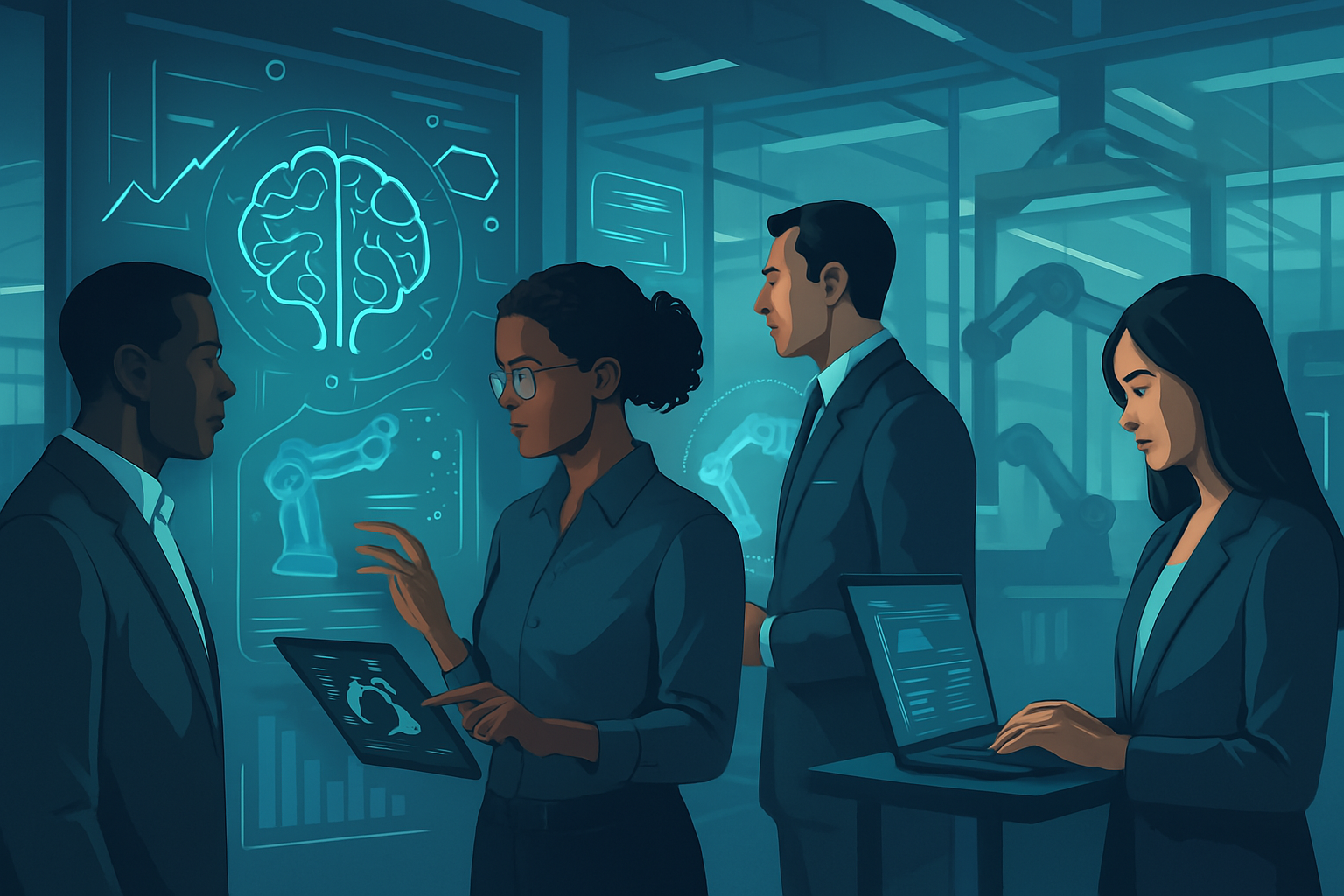
The Future of Work: How AI is Reshaping Jobs and Industries
Introduction: AI as a Major Driver of Change
Artificial Intelligence (AI) is no longer a futuristic fantasy; it is a present-day reality that is profoundly reshaping the world of work. From automating routine tasks to creating entirely new job categories, AI is acting as a significant catalyst for change across virtually every industry. Understanding how AI is influencing jobs, what skills will be most valuable, and how industries are transforming is crucial for individuals, businesses, and policymakers alike as we navigate this evolving landscape. This article will explore the multifaceted impact of AI on the future of work, including its role in automation, job creation, augmenting human capabilities, and the critical need for reskilling and upskilling, while also highlighting potential affiliate opportunities for relevant tools and platforms.
AI and Automation: The Shifting Task Landscape
One of the most discussed impacts of AI is its potential to automate tasks previously performed by humans. This is particularly true for routine, repetitive, or data-intensive jobs.
- Impacted Areas: Manufacturing has seen significant automation through robotics and AI-powered quality control. Data entry, basic customer service inquiries (handled by chatbots), and even aspects of financial analysis are increasingly being automated. This doesn’t always mean job elimination but often a shift in the nature of existing roles, requiring humans to work alongside AI systems.
- Benefits of Automation: Increased efficiency, reduced errors, lower operational costs, and the ability for human workers to focus on more complex, creative, and strategic tasks.
AI Creating New Job Opportunities
While AI automates some tasks, it also creates new demands and entirely new job roles that didn’t exist a decade ago.
- New Roles: There is a burgeoning demand for AI specialists, including AI researchers, machine learning engineers, data scientists, AI ethicists, and AI system maintenance professionals. Additionally, roles are emerging around managing AI-human collaboration and interpreting AI-driven insights for business strategy.
- Growth Sectors: The development and deployment of AI technologies themselves are creating a new economic sector, offering numerous employment opportunities.
AI Augmenting Human Capabilities
Beyond automation, AI is serving as a powerful tool to augment human skills and enhance productivity across a wide range of professions.
- Examples of Augmentation:
- Coders and Developers: AI assistants like GitHub Copilot or Tabnine suggest code, identify errors, and speed up the development process. (Affiliate Opportunity: Promote these AI coding tools or related developer platforms.)
- Healthcare Professionals: AI algorithms can assist in analyzing medical images (like X-rays or MRIs) to detect diseases like cancer with high accuracy, supporting doctors in making diagnoses. AI can also help in drug discovery and personalizing treatment plans.
- Marketers: AI tools help analyze vast amounts of customer data to personalize marketing campaigns, optimize ad spend, and predict consumer behavior.
- Benefits: Improved decision-making, enhanced creativity, faster problem-solving, and the ability to handle more complex information.
Industries Being Transformed by AI
AI’s impact is not confined to a few sectors; it is driving transformation across the board:
- Healthcare: Personalized medicine, robotic surgery, predictive diagnostics, and efficient hospital management.
- Finance: Algorithmic trading, fraud detection, AI-powered financial advisors (robo-advisors), and automated underwriting.
- Transportation: Self-driving cars and trucks, optimized logistics and supply chains, and intelligent traffic management systems.
- Retail and E-commerce: Personalized shopping experiences, AI-powered chatbots for customer service, demand forecasting, and inventory optimization.
- Entertainment: AI-generated music and art, personalized content recommendations on streaming platforms, and AI in game development for more immersive experiences.
Skills for the AI Era: The Human Advantage
As AI takes over routine tasks, uniquely human skills become even more valuable.
- Essential Skills:
- Critical Thinking and Problem Solving: Analyzing complex situations where AI might fall short.
- Creativity and Innovation: Developing new ideas, products, and solutions.
- Emotional Intelligence and Interpersonal Skills: Empathy, communication, collaboration, and leadership – areas where human nuance is key.
- Digital Literacy and AI Fluency: Understanding how to work with AI tools and interpret their outputs.
- Adaptability and Learnability: The ability to continuously learn new skills and adapt to changing job requirements.
The Role of Reskilling and Upskilling
To prepare the workforce for the AI-driven future, a concerted effort in reskilling and upskilling is essential.
- Lifelong Learning: The pace of technological change necessitates a mindset of continuous learning.
- Educational Initiatives: Governments, educational institutions, and businesses need to invest in training programs focused on AI-related skills and the

Leave a Reply